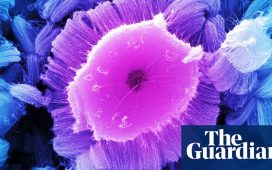Most people have never wondered how and why their urine became yellow. But scientists have been puzzling over it for more than a century.
Back in the late 19th century, medical researchers identified urobilin as the chemical compound that gives pee its distinctive chartreuse hue.
What they didn’t know was how exactly the human body – or rather, our resident colony of gut microbes – produces urobilin out of another compound called bilirubin, which is a waste product from the death of red blood cells.
Now a study in the peer-reviewed journal Nature Microbiology claims to have identified the enzyme that produces urobilin.
Named bilirubin reductase, the enzyme’s discovery could help understand how gut microbes influence harmful conditions such as jaundice, gallstones, and inflammatory bowel disease.
“It’s remarkable that an everyday biological phenomenon went unexplained for so long, and our team is excited to be able to explain it,” said lead author and University of Maryland professor Brantley Hall.
Speaking to Healthline, he explained further: “Unfortunately, gut microbes can be challenging to study. The gut is a low-oxygen environment, and many of the bacteria in our guts can’t survive if too much oxygen is present, making them difficult to grow and perform experiments on in labs.”
But, he said, recent advances in genetics allowed the scientists to compare the DNA of different microbe strains and identify the gene responsible for bilirubin reductase.
“In summary, we unraveled a fundamental aspect of how our gut microbiomes influence our daily lives,” Mr Hall concluded.
Scientists have long known that the amount of urobilin in a person’s blood, and thus the colour of their urine, is a crucial indicator of certain diseases.
Jaundice, for example, results from an overload of bilirubin in the body, sometimes because it is not being properly metabolised by the liver or other organs.
This new study also found that newborn babies, who are vulnerable to jaundice, and people with inflammatory bowel disease have lower levels of bilirubin reductase, suggesting that its absence may contribute to such diseases.
Mr Hall now hopes to test that idea through human studies, examining how our gut microbes’ production of the reductase influences the amount of bilirubin in our bodies.










